If you think about it, much of the care we provide here at Arbor Springs shares similarities to everyday habits. Positive and healthy activities performed regularly to improve the lives of those we care for — we do that all the time.
So as we enter the new year and look for ways to make a change or improve our self-care, what better place to look than to the techniques and tools we use every day here at Arbor Springs? Our Montessori-Based Dementia Programming® offers many strategies that are perfect for building those resolutions into something you actually do as part of your daily routine.
This post can be helpful for everyone, but some of these suggestions are specifically for those who have Alzheimer’s or dementia or are caring for a loved one who does. Taking a few lessons from Maria Montessori and the Montessori method is a great way to improve your life and the life of your loved one through small, simple steps and techniques. Either way, everyone can benefit from some of the “habit hacks” below.
To get us started, here are some great activities that you might consider when looking for resolutions to commit to this new year. If your loved one is struggling with memory challenges, these particular habits can be especially beneficial:
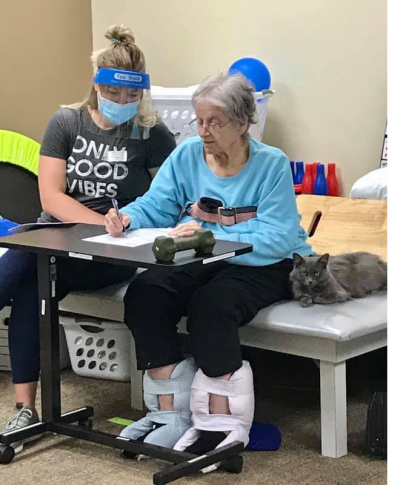
- Read more
- Start journaling
- Pick up a gardening habit
- Learn to knit
- Have a better sleep schedule
- Play more games (crosswords, sudoku, board games, even a fun app!)
- Explore mindfulness and wellness (meditation, yoga, tai chi)
Whatever habit you end up choosing, it’s best to start with a single activity that already excites you. Once you master one, it gets easier to add more.
If you are helping your loved one, make sure to speak with them about what they want and what changes in their life might be of interest. Always involve your loved one. However, you may have to help them along, ensuring their resolution or habit is achievable and realistic.
Okay, so you’ve made your resolution and figured out what habit you’d like to build…now what? Don’t worry. We’ve got some great tips to guide you on your journey!
Make A Plan
First of all, success starts with a plan. When looking to turn your resolution into a real habit, the first step…is to plan your steps!
- Write your plan down. Outline in detail how you are going to build your habit. Speak with your loved one about their goals, time, and expectations.
- Be sure to make a schedule. Even if it’s as simple as every day at 4 pm, commit to that scheduled time every day. Setting a time increases your chance of following through with daily activities.
- Have everything you need. If you are going to journal, make sure you have a pen and something to write on, and know where you will be journaling.
- Don’t spend too long in the planning phase. We can all get caught up and distracted before we even get started. Avoid this. Once you’ve got a good idea of your plan, jump in! It’ll be fun!
Take It Small And Simple
 Breaking down your habit into small steps can often make success feel less overwhelming. Having achievable goals is a core principle of the Montessori method. This is exactly what breaking your habit into small steps will help you accomplish.
Breaking down your habit into small steps can often make success feel less overwhelming. Having achievable goals is a core principle of the Montessori method. This is exactly what breaking your habit into small steps will help you accomplish.
- Know what your first step is. If you are trying to exercise more, start by focusing on putting your shoes on. Say, “At 10 am, I will put on my shoes.” It’s easier to take those small steps and then build on them.
- Make sure that your small steps are achievable and not too complicated. Small tasks are not always straightforward. If your loved one is having trouble starting their gardening habit, simply try a walk in the garden for 10 minutes every day. Then, start bringing gardening tools on the walk. Move slowly, and before you know it, they’ll be full-on gardening!
- Remove unnecessary obstacles. Eliminate as many barriers to completing your task as you can. If your goal is to write or read more, remove all distractions and create space conducive to focusing.
- Be honest about your loved one’s and your abilities. It is easy to get frustrated and deterred when building habits, especially when working with a loved one suffering from Alzheimer’s or dementia or who requires other mental and physical accommodations. Ensure you are not putting them in a position where they cannot succeed or feel uncomfortable.
Always Be Supportive
Whether you are building a habit or helping someone else, it is essential to have some type of support. This critical piece of advice from Montessori’s teachings is even more true when working with someone who has Alzheimer’s or dementia.
- Lend a hand. If you see your loved one struggling, ask if they’d like your help.
- While building your habit, it is vital to be positive. Use encouraging words and be patient. As always, this is even more important for those with memory loss.
- If you are building the habit yourself, you should consider asking someone to help. Having an accountability partner can make a huge difference. Finding someone to check in with and make sure you are adhering to your goals can keep you motivated.
Stay On Track
Finally, one of the best ways to build and keep a habit is to track your progress. This way, you know how well you are doing and can even adjust your plan to make it easier to succeed.
- Create a tally system. If you workout, place a marker in a jar. If you read a chapter, check off that day on a calendar. You can even color-code these if you like. Visualizing your progress and feeling the reward of completion helps you stay focused on accomplishing your goal!
- Help your loved one remember their progress. If you keep track of their successes for them, it is easy to go back and show your loved one how well they’ve done. They may not remember how much work they’ve put in, and reminding them of these successes can make a huge difference.
Everyone Needs A Little Help
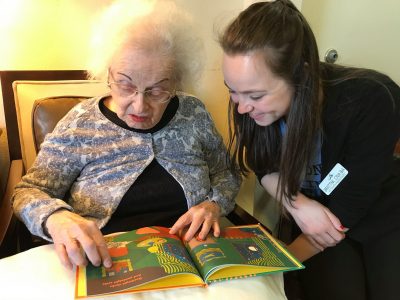
While it is essential to keep your habit, it is equally important to understand the restrictions and challenges that come with Alzheimer’s and dementia. If you are working with a loved one struggling with memory loss, you will have to modify and adapt your process. Be flexible and always involve your loved one in every aspect of the activity and the planning.
Before starting, continuing, and working on building their habits, always ask your loved one if they would like to exercise, read, journal, or whatever else you are doing. Choice is a core principle of the Montessori method and key to respecting your loved one, allowing them to comfortably improve their quality of life.
We’d love to share more about how we use Montessori techniques in our own community to grow healthy and beneficial habits. Reach out to us anytime; we’d love to hear from you!

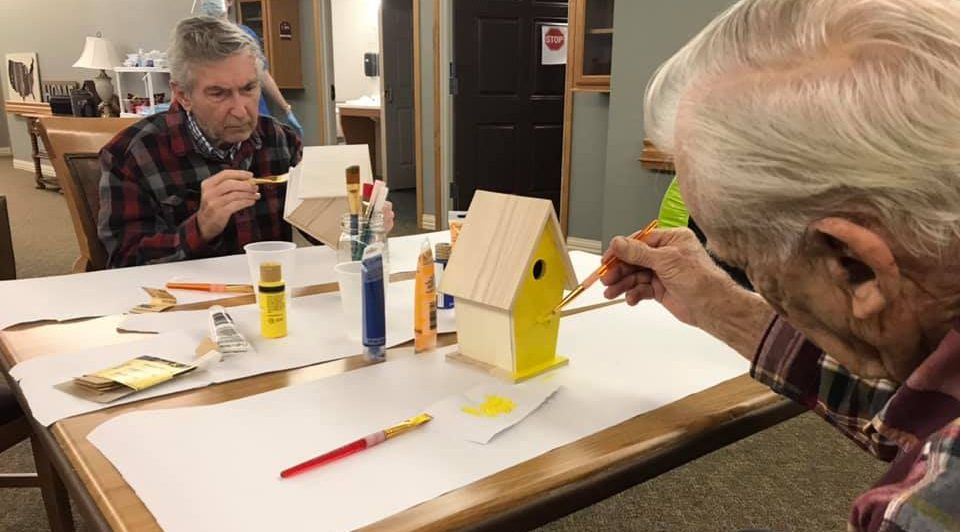

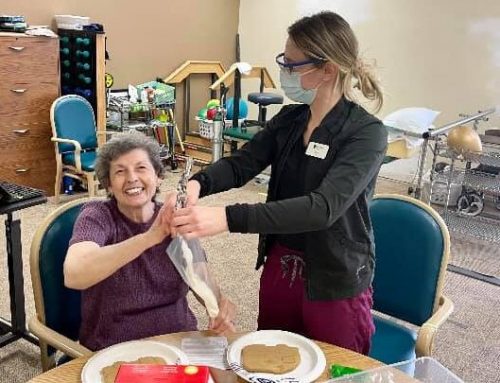
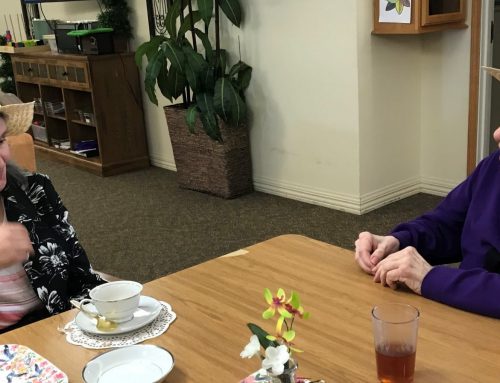


Leave A Comment